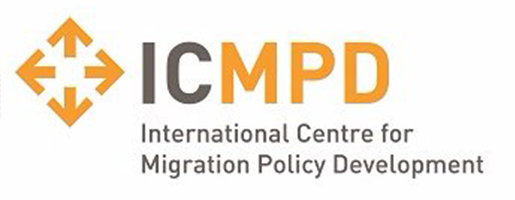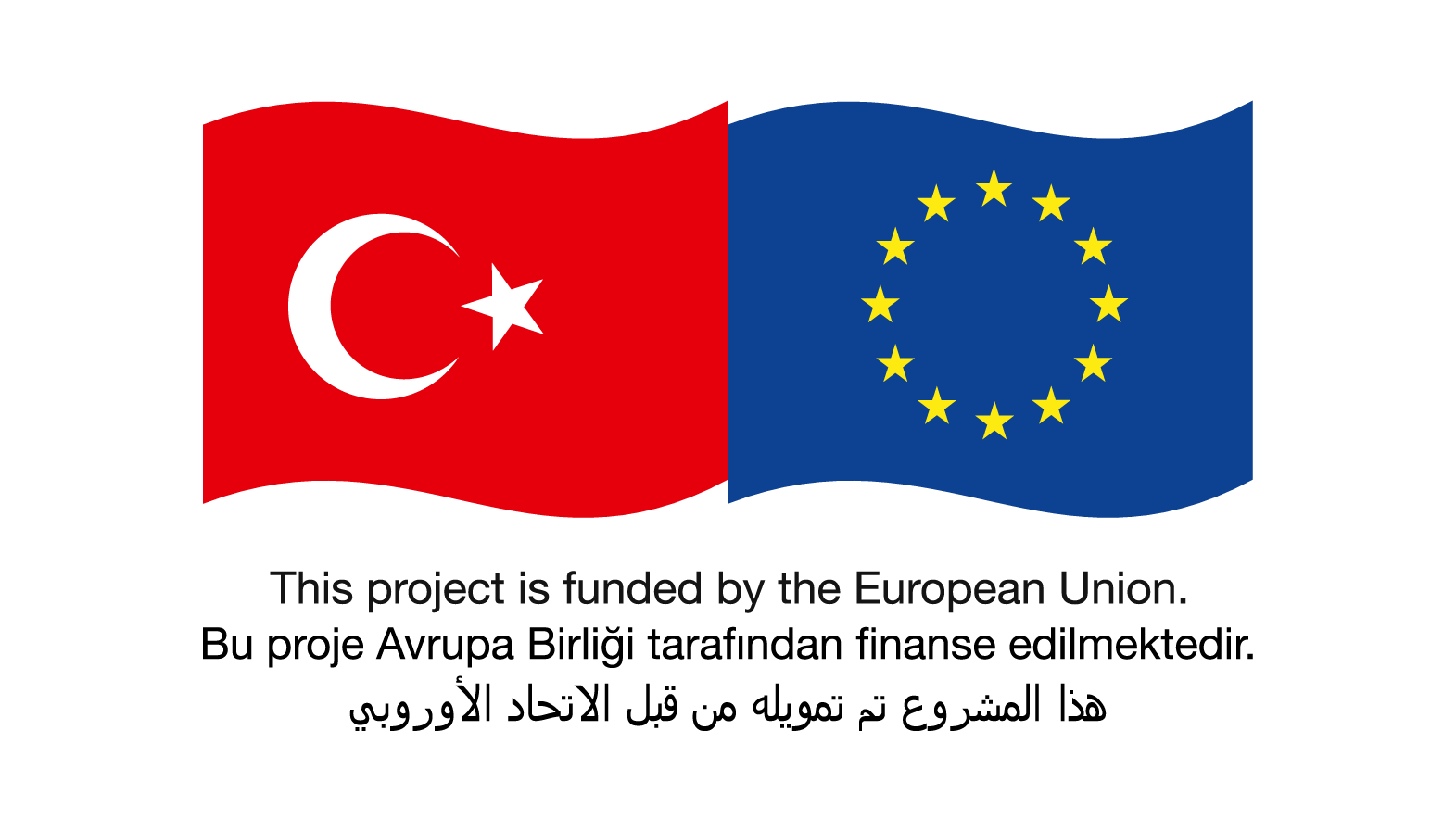Technical Entrepreneurship Training in the Sector of Food and Agriculture was launched in March 2024 within the scope of the ENHANCER Project. 483 participants were succesfully certified in trainings conducted in Ankara, Bursa, Hatay, İstanbul, İzmir and Şanlıurfa.
Participant Testimonials
Ece’s Success Story
Women Will Uplift Hatay
Hello, I am Ece Süral. My story began when I started working at a young age, leading me on a challenging yet deeply educational journey that brought me to where I am today. I began working at the age of 12 as a tailor, shop assistant, and in markets and factories. I got married at 18 and became a mother at 20. During my pregnancy, due to the psychological abuse I endured from my husband, I decided to stand on my own two feet. During this period, I started making handmade jewelry. By crocheting and making lacework, I earned my own money. While expecting my little daughter, I cultivated cucumbers on a 5-acre field and harvested them until my eighth month of pregnancy. I gained economic independence by making and selling pepper and tomato paste. While my husband sold the better-quality products at the wholesale market, I secretly sold the lower-quality ones to cover my own expenses.

From 2007 to 2018, I worked in gardening, animal husbandry, trade, and selling handmade products. I sold Hatay specialties and processed raisins I brought from Denizli by washing, drying, and packaging them. Meanwhile, I completed middle school through distance education and am currently continuing high school. At the same time, I started selling cosmetic products, which I still do today.
I joined “Üreten Eller Kadın Kooperatifi” (Productive Hands Women’s Cooperative), the first women’s cooperative established by the Hatay Metropolitan Municipality. With the municipality’s support, greenhouses were set up for 250 women entrepreneurs, and I became part of one of these greenhouses. For five years, we produced landscaping products in Antakya, Hatay. When the municipality’s support ended, the greenhouses were handed over to us, and I continue production there to this day. During this time, I took on various side jobs, obtained a cooperative certificate, received training in soil-free agriculture, and participated in entrepreneurship programs. I wanted to focus on women-centered projects but struggled to find support.
In the afternoons, I used to take leftover tomato crates from the market and make tomato paste at home. My daughters, who were 14 and 10 at the time, would help me. As my customer network grew, I felt the need to reach more people with my products. I promoted my products by chatting with people I met at the hospital and shared my phone number to stay in touch. Additionally, I made and sold curd cheese and butter from the milk I obtained from my cows. When I received orders, I would buy milk from my neighbors, make cheese, and sell it.
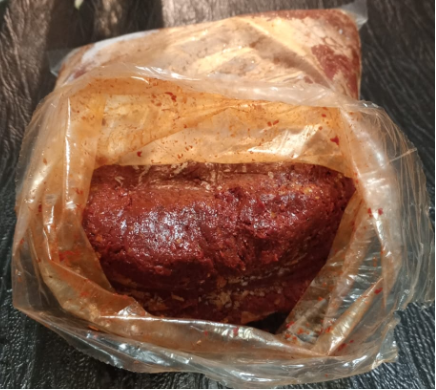
Now, my dream is to open a women’s café. I want to provide a social space for women and sell products made by women there. Thanks to the ICMPD Agriculture and Food Technical Entrepreneurship training, I learned how to write a business plan. With the help of mentoring, I prepared a business plan and am now ready to apply for grant programs. I will uplift women in Hatay and lead this change.
This is my story, filled with struggles yet equally full of hope. The key to success lies in believing and never giving up. I will continue working for the success of many women in Hatay.
Ece Sürel
Hatay/Antakya
Background: Nidal Mustafa’s primary profession is teaching. After moving to the region, she initially worked in the textile industry and later collaborated with UNICEF and the Ministry of Education, teaching Syrian students in temporary education centers for three to four years. Currently unemployed, Nidal is also working in the textile sector.
A New Venture: Nidal aims to enter the dairy products sector and start her own business. She no longer wishes to work in the textile industry or search for jobs elsewhere; instead, she dreams of establishing her own enterprise.
Dairy Production Experience: Although Nidal is not currently producing or selling dairy products, she gained significant knowledge and experience in dairy production while living in Syria. Growing up in a village, Nidal’s family owned cows and sheep, and she was responsible for taking care of the animals and assisting her family in producing dairy products. This background has equipped her with the expertise needed to pursue her new business venture.
Challenges and Overcoming Them: The biggest challenge Nidal faces in starting her business is financial—she lacks the necessary capital. Additionally, she will need one or two employees to assist her. Despite these obstacles, Nidal is confident in her ability to source milk and distribute her products to local stores, acquaintances, and customers using her vehicle.
Lessons from Training: Nidal finds the training program extremely beneficial. She has learned how to create a business plan and gained insights into key topics like social and environmental impact. The training helped her identify her weaknesses and taught her how to address them effectively. Now, she views the certificate she earned from the training as a significant achievement and a step forward in her life. As she embarks on her new business journey, Nidal plans to seek support from companies and firms.
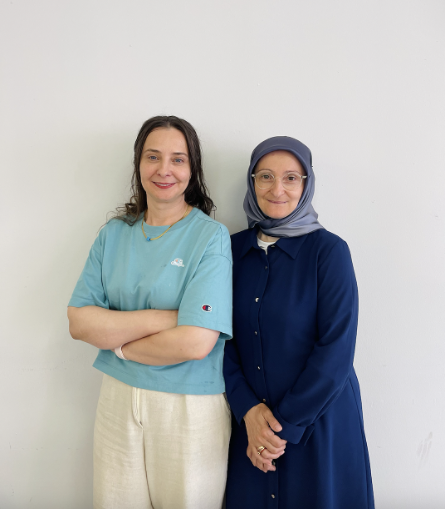
We were born in Candarlı village, located in the İznik district of Bursa. Due to our husbands’ jobs, we moved to the city of Bursa, though our village always remained in our minds as a retirement plan. We were housewives and primary school graduates. Living in a big city on just our husbands’ salaries was very difficult for us.
“I needed to earn money to educate my children. I am a primary school graduate, and not being able to continue my education has always been a regret for me. That’s why I prioritized my daughters’ education.” – Asiye Can
While our father served as the village head, ORKÖY (General Directorate of Forest and Village Relations) provided agricultural incentives to our village. As our father spoke about these incentives, I began to think about how I could benefit from them. I told him I wanted to grow blueberries. Living in the city meant traveling frequently to the village, which was 1.5 hours away, and this didn’t seem realistic to anyone. There were many times when we considered giving up, but our efforts and dreams kept us motivated and committed to our idea. Our father and father-in-law gave us their lands, and we started growing blueberries. Our father became our first investor, and we will never forget his support.
“When I started this business, my baby was born prematurely at five months. I practically raised my child in the fields.” – Asiye Can
We raised and educated our children alongside the work we did in the fields. What initially seemed like properties to sell in the village became both a source of income and our retreat. As a family, we grow, harvest, and sell our products. Through this business, our village opened up to rural tourism and began hosting festivals. We started with just one person, and our product gained recognition through word of mouth. Social media also played a significant role in this process. Young people are enthusiastic about the village and generate various ideas.
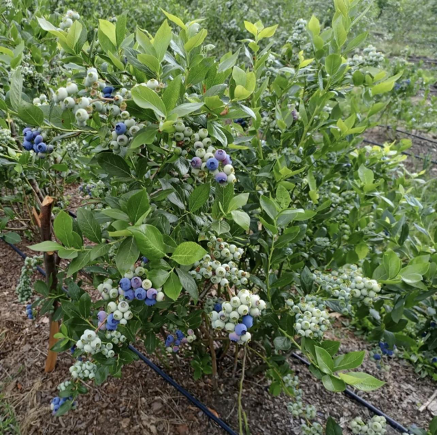
Today, there is no concept of “your product, my product” in the village. If you don’t have a crop this year, I’ll provide for you. When I can’t make it to the field, I know my friends will take care of my crop, from irrigation to selling. Although we didn’t receive formal education in this field, we have reached a point where we are doing this work well, and people now seek our advice. No one believed we could do this. As women, we first proved ourselves to ourselves and then to those around us. Over the past eight years, we have gone through various challenges. Initially, people didn’t believe in our idea and reacted negatively. What started as a personal motivation transformed into a new value we created for the village and its women, eventually transforming not just us but the entire village.
In the past, girls were not given inheritance, and even if they were, they received barren lands. The magical aspect of this fruit is that it thrives on barren lands, turning what seemed like a disadvantage into an opportunity for women. Women in the village now support us in every step, from production to distribution.
We manage everything ourselves, from producing to selling and distributing our products. From the very beginning, we handled every process independently, even cleaning the field by hand without using chemical pesticides. The fruit we work with is incredibly delicate, requiring unique care like fertilizer, water, and specific needs—just like raising a child. With this awareness, we nurture our product like a baby.
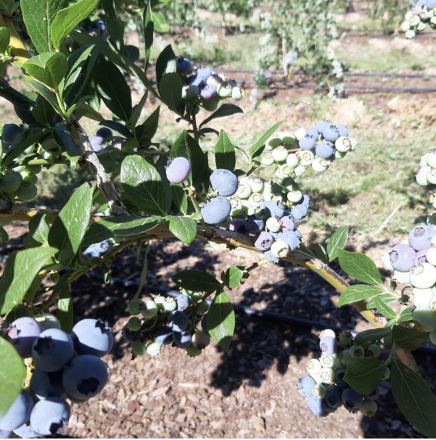
Entrepreneurship can be an unpredictable process. Sometimes, we are left with unsold products, while other times, customers line up in the fields. Experiencing this process has taught us something new every year. Today, we tell anyone who wants to become an entrepreneur: “If someone else can do it, so can you.” If you have an idea, you must try, no matter what. We are an agricultural country and will always need production.
We truly love the product we grow—blueberries are a valuable and sensitive fruit. With its aroma and benefits, it is not yet a product everyone knows about or can easily afford. Our future goal is to promote blueberries further, increase production capacity, and make them accessible to everyone. We also aim to establish facilities to produce by-products such as vinegar, marmalade, dried blueberries, and jam. We want to expand our market and grow our brand.
The training we received from ICMPD has supported us in approaching our business more systematically. Our trainer, Berfu Hanım, who gave feedback on our business plan, provided great help with new markets and marketing strategies. With what we learned from the training and our goals, we hope to be bolder and create opportunities for growth.
Sultan Arkan & Asiye Can
Bursa
The Entrepreneur Who Turned His Mother’s Dream into Reality
Vuslat Baran Oktay – Eski İskele Artisan Jams
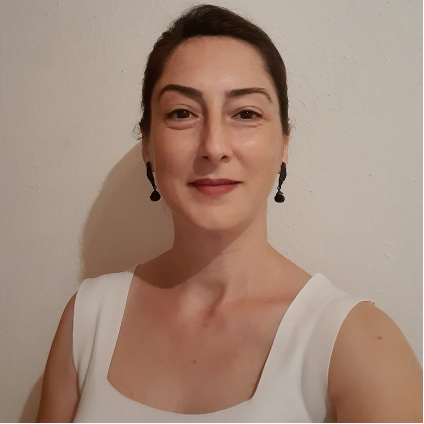
An Entrepreneur Who Turned Her Mother’s Dream into Reality Vuslat Baran Oktay – Eski İskele Artisan Jams I am Vuslat Baran Oktay. Since 2020, my mother and I have been producing homemade jams under the brand “Eski İskele Artisan Jams” in the village of İlkkurșun, located in the Ödemiș district of İzmir. I graduated with a degree in history and worked in corporate jobs for a long time, taking roles in sales and procurement departments at various companies. The intense stress of corporate life led me to feel a growing sense of alienation from work, and I began dreaming of starting my own business. Since 2005, my mother had been running a breakfast café on our family’s 15-acre property in İlkkurșun, which had been passed down from our ancestors. She planted fruit and olive trees in the garden and had been serving her homemade jams at breakfast and selling them retail in her shop for a long time.
Despite my busy corporate life, I never lost my connection to the village. When I realized that the corporate world wasn’t going to provide what I was looking for, the idea of transforming the value my mother had created began to outweigh everything else, and I decided to move to the village. During the pandemic, with the removal of tables and chairs, businesses started to close down, which led us to seek alternative ways to make a living. The idea of wholesale selling the jams we produced had always been on our minds, but the pandemic became a driving force for us. After discussions with the Ödemiș District Agriculture and Forestry Directorate, we were introduced to a government support program that allowed housewives to contribute to the family budget.
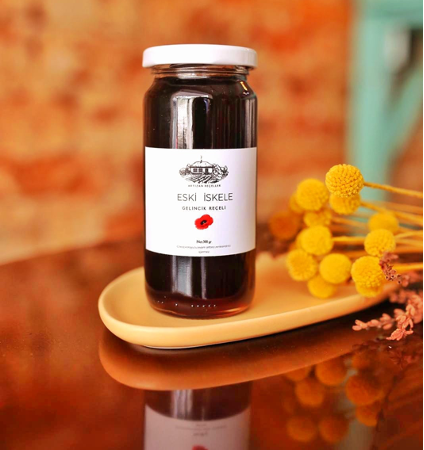
Thanks to this program, we obtained a “home production permit” and gained the opportunity to sell our products online. Our business grew rapidly, and my mother’s famous homemade jams began reaching a much larger audience due to increased demand. Even though I was used to corporate life, I soon learned that entrepreneurship was something entirely different; I realized I didn’t even know the right questions to ask myself. Throughout the process, I attended various entrepreneurship training programs, which gave me new perspectives on where to start, how to sell our product, pricing strategies, and after-sales processes. These training programs also provided me the opportunity to connect directly with major organizations like Migros, Hepsiburada, Istanbul Metropolitan Municipality, and Hilton.

Starting your own business is a huge responsibility. It’s not enough to just produce a product and have confidence in it. When it’s your own business, you have to plan every step from purchasing to packaging, from production to marketing. I learned what sustainability and the green economy truly mean, and how the food communities, cooperatives, and institutions around me could help. Knowing that our jams are produced without fertilizers, are homemade, and are additive-free—beneficial both for nature and human health—is one of my biggest motivations to continue. In entrepreneurship, networking is incredibly important; knowing who to connect with and where to seek support is critical for any new entrepreneur. For those wanting to work in agriculture and food, reaching out to food communities is especially valuable. Our biggest goal moving forward is to establish a lasting brand under the name “Eski İskele Artisan Jams.”
Vuslat Baran Oktay
İzmir
An Entrepreneurship Story Coming from the Land
I am Ahmet Miyanyedi, 23 years old, and I live in Istanbul. I am pursuing a double major in Economics and Management Information Systems at Istanbul Bilgi University. Throughout my education, I have gained various experiences, but I can say that the foundation of my entrepreneurial journey was laid during my high school years. I started my high school education at Kuleli Military High School. The discipline and leadership skills I acquired there played a significant role in developing my entrepreneurial character. I actively participated in clubs and teams at Kuleli, taking my first steps into entrepreneurship. Later, I transferred to Süleyman Nazif Anatolian High School, where I also found many opportunities to pursue entrepreneurship. I served as a student representative and achieved a ranking in TÜBİTAK’s High School Research Project Competition. During this period, I gained more experience in social entrepreneurship and felt the excitement of making an impact in this field.
My startup, Fidetech, began with the idea of establishing a small rooftop garden at Bilgi University. Initially, we saw it as a small experiment, but over time, we realized its greater potential and developed it into what it is today. My main motivation on this journey is my belief in both entrepreneurship and the future of agriculture. I owe the steady progress of our project largely to my team. My team members are experts in their respective fields, versatile, and visionary individuals. While working together, we successfully managed crises and continually pushed the project forward.
Recently, I had the opportunity to strengthen my business plan and further develop myself through the Agriculture and Food Technical Entrepreneurship training and mentorship provided by ICMPD. This training gave me new perspectives on my entrepreneurial journey and helped me take the necessary steps to advance the project. My goal is to continue the project successfully, complete the incorporation process, and then expand internationally to compete on a global scale. My advice to other entrepreneurs is not to rush for rapid progress but to move forward steadily and surely. Entrepreneurship is a long-term endeavor, and approaching it with this mindset will be the best strategy.
Women Power Born in Siverek
I am Seval Arık, the president of the women’s cooperative we established in Siverek, Şanlıurfa. I have lived on this land for many years, and I know how valuable the labor of women in this region is. However, seeing that their efforts are often not adequately appreciated has always deeply affected me. This made me realize that I needed to do something, and thus the idea of the cooperative was born. Together with 14 brave women, we founded this cooperative.
Our goal was not just to produce and sell products; our aim was to enable the women of the region to stand on their own feet. The women here had to work as seasonal agricultural workers under harsh conditions, far from their families and homes, for low wages. However, thanks to this cooperative, we now contribute to our families by producing goods with our own labor, on our own land, and in our own homes.
The main products of our cooperative are dried peppers, tomato paste, pepper paste, and other traditional local products. These are produced while staying true to both our traditions and natural methods. Our women prepare these products using techniques passed down from their mothers for years, ensuring the highest quality.
Each of our products is made with the sweat and effort of our women. This work not only provides economic gain but also strengthens our connection to this land. Since the founding of the cooperative, seeing the changes in the lives of women has motivated me more and more each day. Now, our women no longer have to leave for other cities as seasonal workers. Instead, we contribute to the household economy with the products we produce with our own hands, on our own land. Each day as we work, with every product we create, we gain not only economic benefits but also confidence and pride. Standing tall through our own efforts serves as an example to our children, showing them, “We did it, and you can too.” We faced many challenges along the way. The women joining the cooperative sparked some prejudices in the community. However, through our determination and belief, we overcame these obstacles.
As women, we demonstrated how powerful working together and solidarity can be. Each of us is not only a member of the cooperative but also a leader. What we have learned from one another on this journey has only made us stronger.
In the future, we aim to grow our cooperative further and promote our products not only in Turkey but also internationally. To realize this dream, we continue to develop ourselves and seek new opportunities. In everything we do, we want to showcase the strength and resilience of women. In this journey, the ICMPD Agriculture and Food Technical Entrepreneurship Training has provided us with great support. Thanks to this training, we strengthened our business plan and further developed ourselves through the mentorship processes. This support has become a driving force that will take our cooperative even further. We are immensely grateful to ICMPD for their support on this challenging yet rewarding journey.
One of the most important lessons we’ve learned on this path is that no matter how difficult things get, we should never give up and always strive for better. As long as we are aware of our strength and believe that we can achieve greater things together, reaching our goals will not be difficult.
Seval Arık
Şanlıurfa
Success Story Born from Hardship
I am Ayten Yılmaz Karagündüz, born in Silifke, Mersin, and have been living in Antakya, Hatay, for 20 years. However, after the earthquake, I had to move to Arsuz. My education ended with an associate degree, but my entrepreneurial journey had just begun.
My entrepreneurship adventure started during the early days of the pandemic when we were confined to our homes. A sponsored advertisement on Instagram greatly influenced me and made me ask myself, “Why am I not doing this?” The growing need for healthy eating, combined with the challenges of the pandemic, led me to create my own brand. I had been experimenting with healthy snacks and various flavors in my kitchen for a long time, sharing them with my family. Turning this passion into a business made me both happy and excited. Before starting this venture, I worked as a store manager and a brand registration consultant for many years. However, this new journey opened a completely different door for me.
My first business idea was to produce peanut butter. I entered the market with a product that was free of additives, refined sugar, and oil. However, this process was far from easy. Before launching it, I spent 6-7 months experimenting at home. I took care to ensure the taste remained consistent each time. Finally, in 2021, during the pandemic, I started production and offered my products for sale on social media. Setting up a social media account, creating a website, and registering my brand laid the foundations of my business. I actively began selling on platforms like Trendyol and Shopier. To reach a wider audience, I participated in fairs and shopping festivals.
However, my biggest challenge came with the February 6 earthquake. My entire workplace and equipment were destroyed. I was left with nothing, but giving up never crossed my mind. I told myself, “Continuing to produce can heal me,” and it truly did. With the support of many people I didn’t know on social media, I managed to get back on my feet. Orders that continued for months after the earthquake became a great source of motivation for me.
The training and experiences I gained on my path to success have been an essential part of my entrepreneurial journey. I attended KOSGEB and e-commerce entrepreneurship training, and most recently, I participated in the ICMPD Agriculture and Food Technical Entrepreneurship Training. Through this training, I further strengthened my business plan and had the opportunity to develop myself with mentorship processes.
With the support I received from these trainings, I am confidently moving forward to grow my business and achieve my dreams. I believe that perseverance and continuous development, no matter the challenges, are the most important factors on the road to success. My greatest goal for the future is to show the power of women more in business and production and to increase women’s employment. As I progress on this journey, I want to inspire other entrepreneurs by sharing my story.
Ayten Yılmaz Karagündüz
Hatay
Diligent Hands that Produce- Zeynep Derintaş’s Entrepreneurship Story from Viranşehir
My name is Zeynep Derintaş, I live in Viranşehir, and I take pride in contributing to my household economy through my own efforts. Believe me, it hasn’t been an easy journey, but I never gave up.
I produce isot (hot pepper), dried peppers, and tomato paste on the fertile lands of Viranşehir. I also grow and sell the famous local vegetable “şelengo” from my fields. It is not always easy for a woman to work or start her own business here. At first, the people around me were not supportive of women working. Many said, “A woman stays at home, she doesn’t work outside.” But I was determined. I knew what I could achieve with the products I had, and I wanted to do better for my family.
When I made my first earnings, I started to slowly change those opinions. Yes, it was a difficult process, but now those same people are supporting me. With the money I’ve earned, I have both improved my family’s well-being and become a role model for other women around me. I’ve always believed in the power of cooperatives or individual efforts. By bringing the products I grow in my own fields to market, I am both preserving traditional production methods and using modern marketing techniques to reach wider audiences.
The ICMPD Agricultural and Food Technical Entrepreneurship Training has been a great support for me on this journey. Thanks to this training, I have not only strengthened my business plan but also increased my self-confidence many times over. The mentorship processes have helped me not only grow my business but also inspire more women. Now, I am not just a producer, but an example for more women in this region to contribute to the economy. Every woman is strong, and if she is trying to achieve something, no obstacle can stop her. With this belief, I will continue on my path to reach even bigger goals.
Zeynep Derintaş – Şanlıurfa
